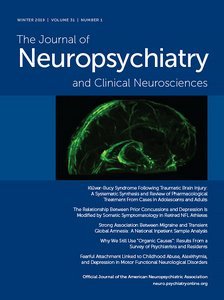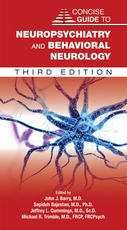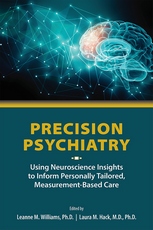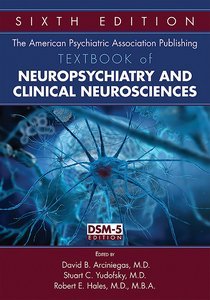Catatonia
From Psychopathology to Neurobiology
View Pricing
Description
During the 20th century, catatonia all but dropped off the agenda of mainstream psychiatric research. However, several dedicated research groups, represented in this volume, continued to report original data highlighting catatonia as a relevant and ideal subject for clinical study. This book, which exemplifies the unparalleled breadth of the knowledge gained, will benefit clinicians managing catatonic phenomena as well as researchers interested in pursuing further investigations.
This book covers in great detail the psychopathology and neurobiology of catatonia, focusing on the history, epidemiology, etiology, diagnosis and treatment of the disorder. This comprehensive volume
- Offers a wide representation of the historical and worldwide literature on the many variants of catatonia in a single, well-organized text.
- Includes work presented by the original investigators, many of whom work outside the United States and have had their previous studies published only in non-English journals.
- Covers alternative opinions and perspectives on catatonia, contributing novel and illuminating perspectives on the syndrome.
- Addresses areas of controversy—including disagreements over treatment and the nosologic status of catatonia—head-on, in a balanced, evidence-based presentation.
- Balances practical clinical material with the underlying neurobiology, presenting clinical aspects in the context of history, epidemiology, cross-cultural perspectives, and neurobiological findings and highlighting the richness and intellectual attraction of the study of the disorder.
Catatonia is unique in offering a diverse, international group of contributors and such a comprehensive, up-to-date review of the clinical and scientific literature, spanning the breadth of contemporary understanding about the nature, meaning, and importance of the syndrome.
Contents
- Contributors
- Preface
- Chapter 1. History
- Chapter 2. Epidemiology
- Chapter 3. Nosology
- Chapter 4. Clinical examination
- Chapter 5. Standardized instruments
- Chapter 6. Laboratory findings
- Chapter 7. Neuroimaging and neurophysiology
- Chapter 8. Periodic catatonia
- Chapter 9. Malignant catatonia
- Chapter 10. Medical catatonia
- Chapter 11. Drug-induced catatonia
- Chapter 12. Pharmacotherapy
- Chapter 13. Convulsive therapy
- Chapter 14. Prognosis and complications
- Chapter 15. Genetics
- Chapter 16. Animal models
- Chapter 17. Brain evolution and the meaning of catatonia
- Index
Contributors
- John Thomas Beld, M.D.
Peter Braunig, M.D.
E. Cabrina Campbell, M.D.
Stanley N. Caroff, M.D.
Brendan T. Carroll, M.D.
Max Fink, M.D.
Andrew Francis, M.D., Ph.D.
Gregory L. Friccione, M.D.
Harold W. Goforth, M.D.
Robert A. Greenstein, M.D.
Stephen J. Kanes, M.D., Ph.D.
Stephanie Kruger, M.D.
Joseph W.Y. Lee, MBBS, MRCPsych, FRANZCP
James L. Levenson, M.D.
Antonio Lopez-Canino, M.D.
Chitra Malur, M.D.
Stephan C. Mann, M.D.
Michael F. Mazurek, M.D., FRCP(C)
Ann M. Mortimer, B.Sc., MBChB, FRCPsych, M.Med.Sc.
Georg Northoff, M.D., Ph.D.
Ananda K. Pandurangi, M.D.
Georgios Petrides, M.D.
Kemuel Philbrick, M.D.
Patricia I. Rosebush, M.Sc.N., M.D., FRCP(C)
Teresa Rummans, M.D.
Gerald Stober, M.D.
Kenneth A. Sullivan, Ph.D.
Michael Alan Taylor, M.D.
Gabor S. Ungvari, M.D.
About the Authors
Dr. Stanley N. Caroff is Professor of Psychiatry at the University of Pennsylvania School of Medicine, and Chief of Inpatient Services at the Department of Veterans Affairs Medical Center, Philadelphia, Pennsylvania. He also serves as Director of the Neuroleptic Malignant Syndrome Information Service and is a member of the Board of Directors of the Malignant Hyperthermia Association of the United States.
Stephan C. Mann, M.D., is Professor of Psychiatry at the University of Pennsylvania School of Medicine and Director of Clinical Psychopharmacology at the Mental Health Clinic of the Department of Veterans Affairs Medical Center, Philadelphia, Pennsylvania. He also serves on the Professional Advisory Council of the Neuroleptic Malignant Syndrome Information Service.
Andrew Francis, Ph.D., M.D., is Associate Professor of Psychiatry at the State University of New York at Stony Brook School of Medicine, where he is Chief of Inpatient Services and Medical Director of the Day Treatment Program. He also serves on the Professional Advisory Council of the Neuroleptic Malignant Syndrome Information Service.
Gregory Fricchione, M.D., is Associate Professor of Psychiatry at the Harvard Medical School and Associate Chief of Psychiatry at Massachusetts General Hospital, where he also serves as Director of the Division of Psychiatry and Medicine and Director of the Division of International Psychiatry.
Related Products
Carousel Control - items will scroll by tabbing through them, otherwise arrows can be used to scroll one item at a time








